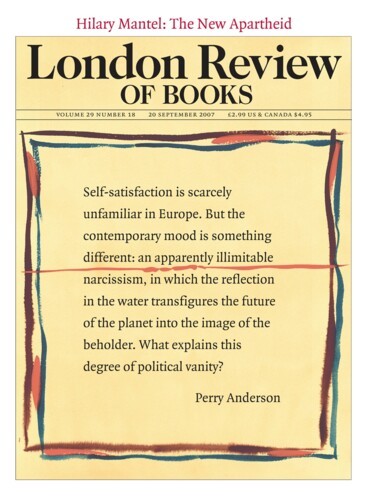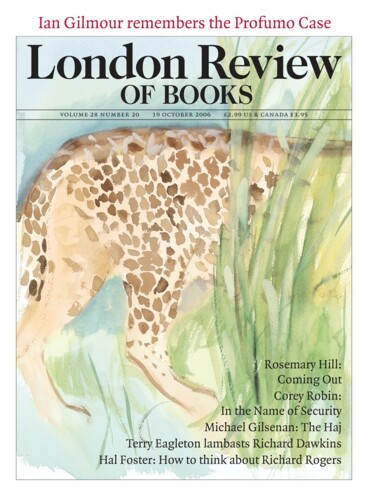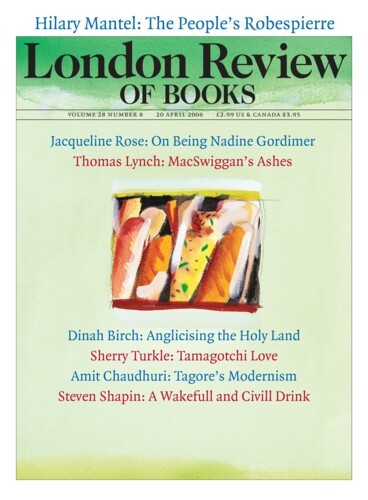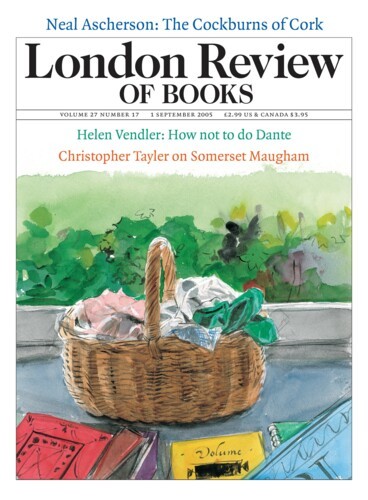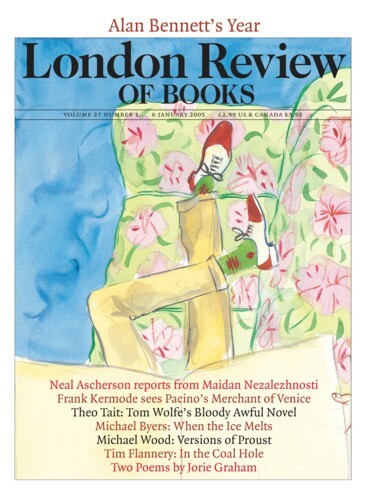Very Pointed: Pugin
Dinah Birch, 20 September 2007
Modern lives look prim beside the turbulent existence of Augustus Welby Northmore Pugin. Distractions and misfortunes proliferated throughout his career: shipwreck (he was in his own boat, trading antiquities as a teenager, and barely escaped drowning), bankruptcy, three marriages, several tumultuous love affairs, children conceived out of wedlock, and a series of uncertain commercial...
